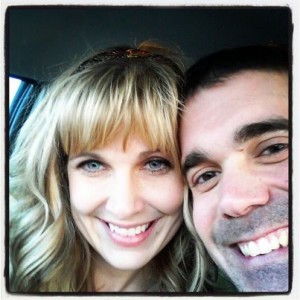
by admin | Mar 27, 2013
There is no factor that motivates quite so strongly as the desire to be successful (except, perhaps, the fear of being unsuccessful). Everyone understands the ambiguous term of ‘successful’ differently, which makes it a peculiar bullseye for so many people to fixate on.
We are fixated upon it though. ESPECIALLY at the time of my writing, which is in the midst of final exams for college students.
Generally, if you ask someone what success is, he or she will say different things, from wealth to the company of lovers. Ultimately, though, most people define success as accomplishing a specific goal.
If success is simply a matter of achieving goals, why do we not aspire for goals that are easily achieved? Why do men stretch upward for riches when they could easily step down and be poor?
If we are honest with ourselves, we are trying to achieve goals that others have set for us. Success is not a matter of us reaching our goals so much as it is a matter of being viewed a success by others. It is for this reason men will sacrifice everything they have in order to achieve something they do not want. Success is just a matter of being perceived as a successful.
Another troubling aspect of success is how subjective it is. If I truly were to aspire for poverty, and acquired as much debt as possible while spending all the money I had to begin with, I could look in the mirror and tell myself ‘job well done’. But I would be surrounded by a society that pitied me and looked down their noses at me. I would proudly shout, “I am a success!” while they would whisper quietly to each other “Failure.”
So now we arrive at an interesting question: Who defines what we consider success? The answer to this question will point toward the person, whom you respect most, love most, and most desire approval from.
If you set your own goals, then success is nothing but a selfish game played in order to get yourself to the highest state. If society sets the goals, then success is an impossible attempt to please everyone with the goal always just beyond our reach.
There is, however, a third option.
Suppose man valued something more than society’s opinion of society. Suppose man valued something even more than himself. If God determined our success, and we valued His opinion above all else, would our lives be any different from the Sisyphean task society places upon us? Would it look the same as the self-centered success?
God does not shy away from saying what He expects from mankind. (This is where I expect the reader is sighing “Oh shoot, not those commandments again…) But God’s expectations are simpler than the 613 commandments in the Old Testament. What God expects can be stated in two verses:
Hear, O Israel: The Lord our God, the Lord is one. Love the Lord your God with all your heart and with all your soul and with all your strength.
That’s it. That’s what God expects. Emphasis should be put upon that very first word, “Hear.” God does not want us to give him our ears but not our hearts. God wants obedience.
No matter if you are scorned, mistreated, maligned, slandered, beaten, discredited, cheated or spurned, if you are obedient to God then He will welcome you with open arms, and say, “Well done.”
For the Christian, success is this: Faithful obedience to God’s will.
It’s impossible to be obedient to God’s will without knowing God’s will. I cannot stress how imperative it is to be actively engaged in studying the word of God and praying. In order to obey God, it is necessary that we listen to what God is saying.
May you have a life of abundant success.

by Jaci Greggs | Mar 12, 2013
“I don’t know what the future holds, but I know Who holds the future.” “When you can’t see where the train is going, trust the Conductor.”
We’ve all heard them, the altruisms that tell us to hold on and have faith during times of uncertainty. And while they are inspirational, they don’t always measure up during times of serious or prolonged uncertainty.
I met my husband when we were 13 years old. When we grew up, we had a plan. Finish college, get married, buy a house, work for a few years, have some kids, raise them around our families. Maybe get a dog.
We had a plan.
Then things changed. My husband felt drawn away from his profession and to joining the Army. And after a year of praying and exploring options, he swore in on July 17, 2009. Less than 6 months later, we had sold our house and were living in different states while he attended training. We had no idea where we would be living or even what his actual job would be once that training was completed.
We waited to find out where we would be stationed. We waited to find out what his job would be. We faced constant changes to training schedules that ultimately resulted in him being absent for more than ¼ of the year before he deployed. And then we waited for deployment, not knowing exactly when he would leave almost until he did.
Now we are in the midst of a deployment and we have a good idea of approximately when it will end, but not an exact one, thanks to factors outside our control like federal budget cuts and adjustments to military goals. And we still don’t know when we’ll be able to start a family.
During all this, God has allowed us to learn what it truly means to walk by faith and not by sight. I’ve never said the words “I don’t know” as much as I have the last couple of years. At first it was stressful. Now, I can say “I don’t know” and feel assurance. “I don’t know” simply means “I’m letting God decide.”
Oh, I’m not saying there’s no more worrying, no more doubt, no more difficulty giving up my own plans. I haven’t mastered patient waiting. At the same time, I’m lengths ahead of where I used to be.
The funny thing is, the only way I was able to learn how to trust God in uncertainty is to walk into uncertainty. Maybe that’s just me, maybe I’m a slow learner. It wasn’t something I could learn first and then say, “Okay God, I’m ready to give up making plans and knowing what my life will be like 6 months from now.” It’s strictly on-the-job training.
But that’s why it’s called faith.

by admin | Mar 4, 2013
Recently I heard one of the counselors at Rob’s Ranch tell the clients….”Everyone will relapse, but no one ever has to take another drink or do another drug.” The more I pondered this, the more it made real good sense, but not only for the “addicted” out there, but for the general population as well.
Before I get too far into this, for those of you who don’t know what the word “relapse” means here is a definition. I know there are a few out there because my daughter asked me over the weekend and I had to try and explain it. So here is my very simple definition.
Relapse – When after a period of abstinence a person reengages in an activity that is painful to themselves or to others.
Relapse, backsliding, setbacks, regression, falling off the wagon, it doesn’t matter what you call it or specifically what you are speaking to. The point is, none of us are perfect and we all will have moments of relapse in our thinking, speaking or even in our actions. The important thing we must focus on is how we go about recognizing what we are doing. If we can strengthen our ability to assess our behavior in real time, to tune into what the Holy Spirit is convicting us of, we can be better suited to stop ourselves from ever “taking that drink” or “binging” or “visiting that website” or doing whatever it was that we are trying not to do.
For those of us that are chemically dependent we know that for a long time we have medicated our pain with chemicals. Drugs or alcohol….for many of us – both. Since this is where I have the most experience, I will stick to speaking to “using” drugs or alcohol, but I want to make it clear that this general principle of relapse is common to anyone out there trying to rid themselves of some type of addiction, habit or hang-up. Be it a porn-addiction, compulsive eating, gambling, etc.
Relapse does not start when we decide to finally use again. It’s a long process of us slowly migrating back into old behaviors, practices or attitudes. Below are the 4 common areas of Relapse, areas in our life that we can quickly look at to gauge how we are living and how actively we are pursuing our choice to be abstinent. Like a barometer, measure yourself in these categories and ask yourself this question.
What is your pain in these areas….?
Relationships
- God -Check your relationship with God?
- YOU – How much do you love yourself today? What is your self-worth level?
- Others – When we are using, on average, we hurt 21 other people. Are hurting others again?
Lying
- How do you feel about lying to God, to others?
- Is this a practice that has crept back into your everyday actions?
- Are you lying to yourself about your true spiritual condition?
Delusions and Denial
- Are you beginning to negotiate with yourself in order to do things you haven’t been doing or know you shouldn’t?
- Are you criticizing others?
- Are you hanging with the wrong people?
- What are you watching, listening to or attending? Your environments are huge influences on your overall well-being.
Letting up on daily disciplines
- Are you justifying missing meetings, daily devotional readings or family events?
- Procrastinating on step work, calling your sponsor or hanging with encouraging and positive people?
- Have you missed church for weeks at time?
- Are you reading the word or excusing that time for selfish gain?
If you are nodding yes to yourself as you read some of these bullet points, then check your program, check your behavior and call someone who cares about you right now.
Also here are a few points to help you steer clear of relapse.
Stay away – Steer clear of slippery people, slippery places and slippery things.
Stay Motivated – Find whatever it takes to keep you positive, passionate and living “on purpose.”
Stay in Routine – As soon as you realize you’ve slipped into a state of relapse. Immediately go back into the routine that keep you sober the first 30-90 days. Prayer, devotional, gratitude, meetings, church, etc. Whatever it is for you get back in to a positive routine.
Get motivated! Get back in your routine! ODAT!
People often say that motivation doesn’t last. Well, neither does bathing – that’s why we recommend it daily. — Zig Ziglar

by Tiffany Zylstra | Feb 14, 2013
Picture this: broken-down car, it’s 31 degrees outside, no heat, no idea what’s wrong, all of the lights on the dashboard on, and just to top it off it’s snowing. In the world of a single gal I did the only thing possible….I called my dad.
He’s trying to talk a rapidly getting anxious girl into figuring out where a fan belt is under the hood. I didn’t even know my car had a fan belt. I’m thumbing through the owner’s manual thinking that it certainly has to tell me options of what’s wrong. All of a sudden there is that gentle reminder to trust God.
Trust is one of the hardest lessons for me to learn. I’m constantly having to ask for forgiveness because this independent female was bound and determined to do it herself. Then as soon as I fail God gives me the reminder that my failure could have been avoided if I had allowed the situation to happen on His timing and in His way.
How many times every day does God have to remind you to trust with a gentle, or not so gentle, reminder?

by Ashley Haupt | Feb 10, 2013
Before we were married, I heard the illustration that marriage is like a triangle and the closer you each get to God, the closer you will grow toward each other.

And I liked that. Neat and tidy and hopeful. But after seven years, I’m not sure marriage follows neat little formulas.
Now I think it’s a little more like a kite with two strings. And we’re each holding one and God is our wind; it wouldn’t even stay up in the air without him. But still we wrestle.
We give it too much slack, that marriage kite, and it soars away too far, each of us busily managing our own isolated strings. No one tames the wind or the Holy Spirit and we start to snap, crackle, and pop under the strain of that distance we’ve allowed.
So we have to draw it back in, winding our way back to each other and a safer place. And sometimes, like last week, we’re just mad and we jerk angrily at the slack, wrestling words and folly.
But we don’t let go, and God and the wind and Holy Spirit keep blowing, and it’s a triangle after all.
So we keep on flying that kite.
And it’s beautiful.





